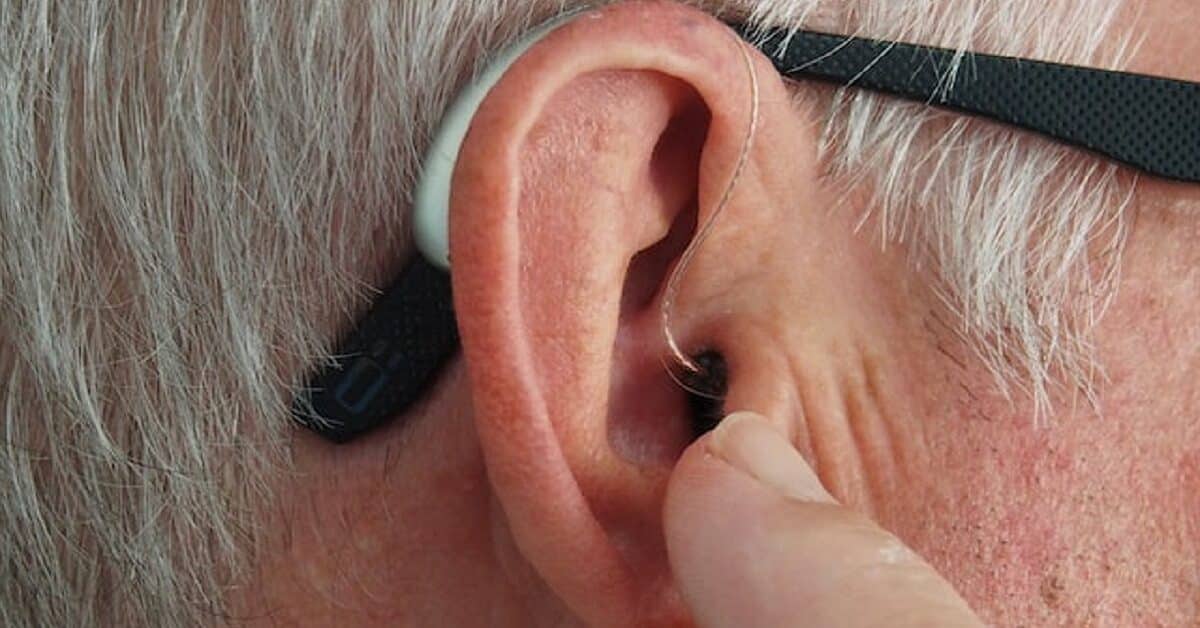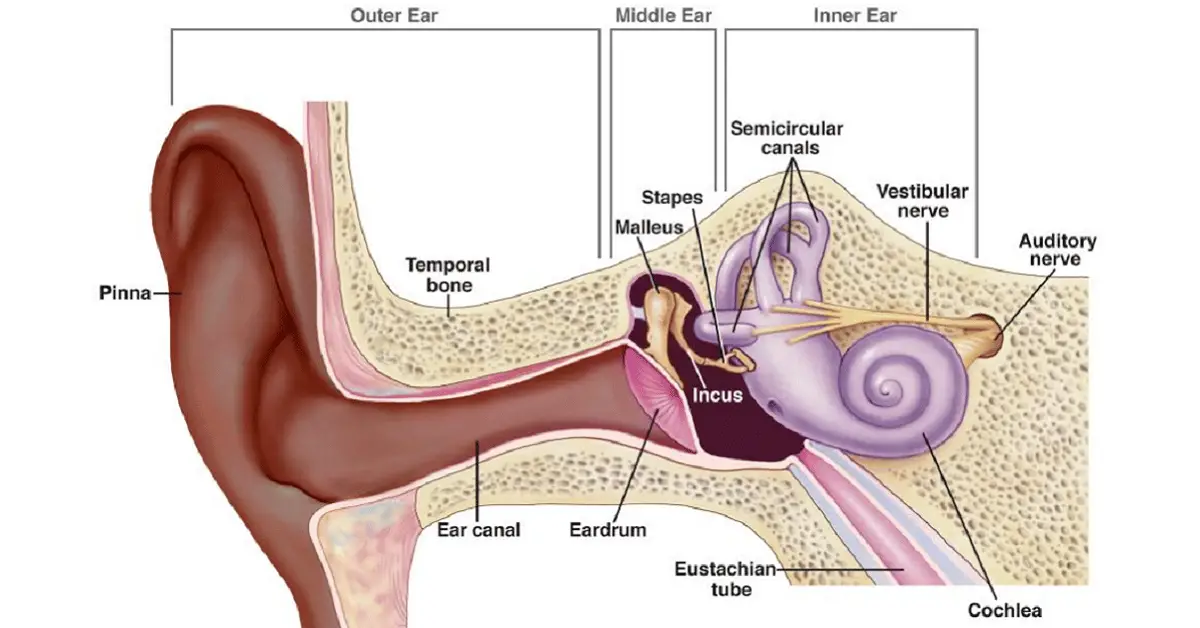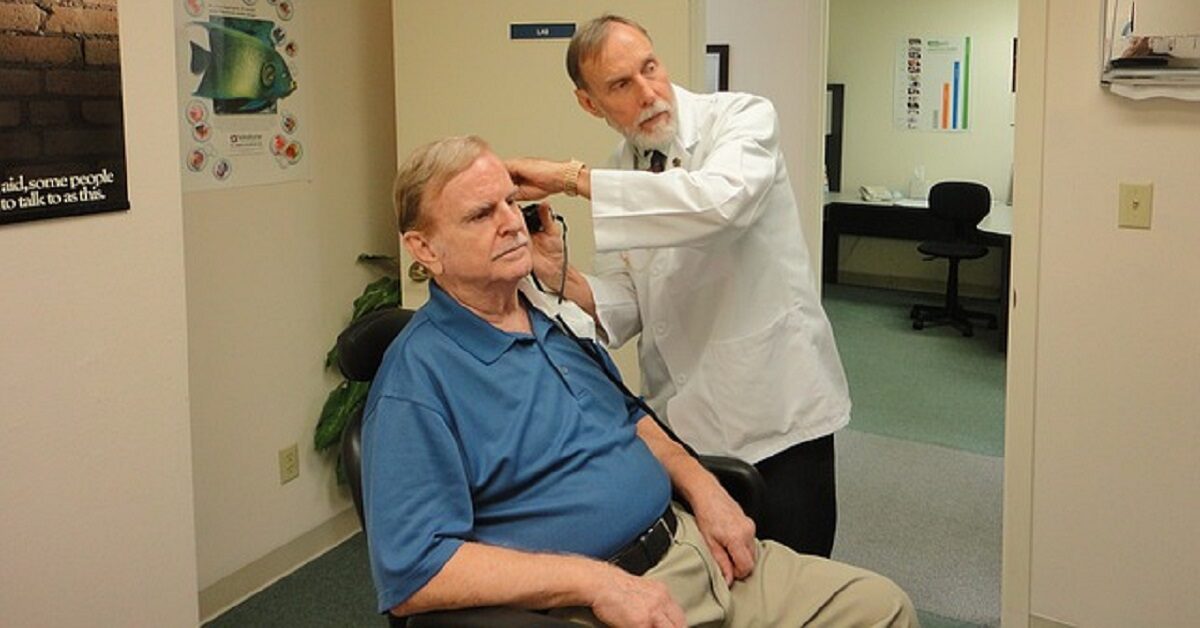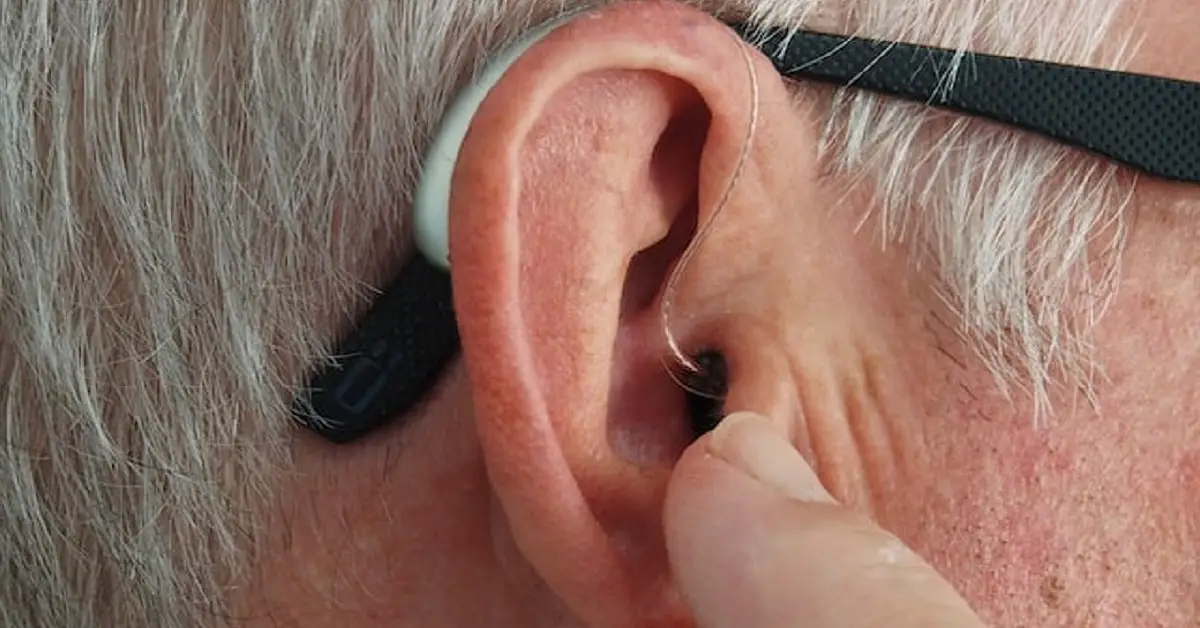
People 18 years and older can get over-the-counter (OTC) hearing aids in U.S. stores starting today (October 17).
The development comes after the FDA issued a final rule on August 16 that enabled millions of Americans (including older adults) with mild-to-moderate hearing impairment to purchase affordable OTC hearing aids without prescriptions.
Under the rule, adults with mild-to-moderate hearing loss can purchase OTC aids from traditional and online retailers without undergoing a medical examination, getting prescriptions, or seeing an audiologist to fit a device.
Contents:
FDA will regulate OTC hearing aids as medical devices
OTC hearing aids set to revolutionize the industry
Older adults are a key demographic to benefit from OTC hearing aids
Signs you may have age-related mild-to-moderate hearing loss
When you may need to see your doctor
Effects of untreated hearing loss in older adults
Untreated hearing loss increases dementia risk in older adults
Does hearing loss cause dementia in older adults?
Can OTC hearing aids delay or prevent dementia?
FDA will regulate OTC hearing aids as medical devices
Although they will be available to everyone over the counter, the FDA will continue regulating the production, marketing, and sale of OTC hearing aids alongside all other OTC medical devices, such as blood pressure monitors and glucometer devices.
The new FDA rule requires manufacturers to ensure that the OTC devices are safe and effective for people with mild-to-moderate hearing loss.
The rule also requires manufacturers to provide information buyers need before and after buying the devices. It requires manufacturers to provide information about signs and symptoms that may indicate you need to see a medical professional before getting a hearing aid.
PSAPs vs. hearing aids
OTC hearing aids should not be confused with personal sound amplification products (PSAPs) that can also be purchased without prescriptions for use by people without hearing loss.
The FDA does not regulate PSAPS as medical devices.
People without hearing loss may use PSAPs to amplify sounds in various situations, such as listening to a lecture in a crowded theater, in environments with distracting background noise, or when trying to focus on soft sounds during hunting or birdwatching.
[Learn more about the difference between PSAPs and hearing aids here and here.]
OTC hearing aids set to revolutionize the industry
Prescription hearing aids are expensive. A pair may cost more than $5000.
They were available only from health professionals, such as ENT specialists (otolaryngologists), audiologists, and other service providers.
The FDA rule hopes to generate more competition in the industry and lower the cost of high-quality hearing aids for people–especially older adults– with mild-to-moderate hearing loss.
[Note: OTC devices may not be suitable for people with severe hearing loss.]
Policymakers envision a situation where anyone can walk into a store or go online to purchase OTC hearing aids at lower prices than prescription aids of comparable quality.
Manufacturers and retailers have been preparing for new dispensation with plans to introduce new services and devices to the market.
According to the New York Times, Best Buy plans to open centers in more than 300 stores nationwide. Customers, assisted by trained sales staff, can choose between several over-the-counter brands.
Customers can use online hearing test tools to calibrate their devices for self-fitting. They will have the option of requesting assistance from trained sales staff to choose and fit devices. Most will also need aftersales support services, including maintenance and repair.
Sony is also reportedly entering a new partnership with the Danish hearing aid manufacturer WS Audiology, while others, such as Bose and Lexie Hearing, are planning to introduce a $900 self-fitted OTC device.
Free hearing test tools are already available online:
- Free online hearing test – Phonak
- Free Online Test | hear-it.org
- Hearing Test | Starkey
- Beltone Free Online Test
Other online resources you may consult include:
Older adults are a key demographic to benefit from OTC hearing aids
According to the FDA, close to 30 million U.S. adults could benefit from access to lower-cost OTC hearing aids.
Older adults are a key demographic expected to benefit from the availability of lower-cost OTC aids because people aged 50 years and over have a significantly higher incidence of mild-to-moderate loss.
Lin and associates (2011) reported that based on the World Health Organization’s definition of hearing loss, the prevalence among U.S. adults 70 years and older was 63.1%.
According to Chien and Lin (2012), the prevalence of hearing aid use among U.S adults 50-59 years old with hearing loss (≥ 25 dB) was 4.3% but increased to 22.1% in individuals 80 years and over.
Such estimates indicate that the market for investors in developed countries with aging populations is enormous.
Signs you may have age-related mild-to-moderate hearing loss
Many older people first suspect hearing loss when they notice difficulty understanding speech or hearing sounds in circumstances they previously had no issues.

According to the National Institute on Deafness and Other Communication Disorders (NIDCD), you may be experiencing age-related hearing loss if:
- You lean forward, cup your ears, and strain to hear when others appear to have no difficulty
- You often ask people to repeat themselves or speak louder
- Others complain that you turn up the volume of your TV, stereo, or radio too high
- Others say you are speaking louder than necessary or shouting
- You often find yourself in awkward or embarrassing social situations because you struggle to hear
- You are withdrawing from social situations to avoid awkward encounters
People experiencing hearing loss may notice the signs but often remain in denial. Instead of admitting it, they may claim that others mumble, don’t speak clearly, or don’t speak loud enough.
But family members often notice the signs and come to the correct conclusion. For instance, relatives may detect an increasing difficulty getting the person’s attention by calling their name when they are looking elsewhere. Family members who notice these signs often have to convince the person that they need to go for a test.
When you may need to see your doctor
Hearing aids are not suitable for all types of hearing loss.
For instance, they work best for people with mild-to-moderate loss and may not be suitable for people with profound or severe loss.
Hearing health specialists have voiced concern that easy access to OTC hearing aids could encourage people to self-treat medical issues that need prompt professional attention.
Experts advise that despite the availability of OTC hearing aids, it is wiser to see your healthcare provider for proper diagnostic tests to determine whether you are a good candidate for an OTC device.
According to the NIDCD, signs that suggest you need to see your healthcare provider before getting an OTC hearing aid include (but are not limited to):
- Discharge from the ears
- Pain or discomfort in one or both ears.
- Dizziness or vertigo associated with hearing loss
- Sudden hearing loss or rapidly progressive loss
- Ringing in ears, known as tinnitus, especially ringing in only one ear
- Hearing loss in one ear or difference in loss between one ear and the other
Effects of untreated hearing loss in older adults
Hearing aids treat mild-to-moderate hearing loss common among older adults.
Age-related progressive loss is common among people in their 60s and 70s. Older people with hearing loss find it difficult to follow in-person or phone conversations. They often ask people to repeat themselves or speak louder. Many continue struggling with hearing even after being fitted with aids due to multiple factors:
The brain needs time to adjust to processing new auditory information after being fitted with a new hearing aid. Lower-quality aids may deliver a poor hearing experience, such as being unable to sieve interfering background noise effectively.
Experts recommend prompt treatment of hearing loss in older adults for several reasons:
Even mild loss can profoundly impact the quality of life of otherwise healthy adults. Individuals with hearing loss may experience social isolation due to challenges in maintaining social contact.
Social isolation could lead to mental health issues, including anxiety, self-esteem problems, depression, and an increased risk of potentially fatal falls.
Untreated hearing loss increases dementia risk in older adults

Research studies have documented an association between dementia and hearing loss in older adults.
Uhlmann and associates(1989) reported that impairment in older adults was strongly and independently associated with the risk of dementia.
The finding led to other studies investigating the association between age-related hearing impairment and dementia risk (Lin and Albert, 2014).
Lin and colleagues (2013) reported that impairment was associated with a 30%-40% increased rate of cognitive decline.
According to Gallacher and associates (2012), hearing loss raised the risk of all-cause dementia.
Compared with individuals with normal hearing, subjects with mild, moderate, and severe loss had 2-, 3-, and 5-fold increased risk (respectively) of all-cause dementia over a follow-up period greater than 10 years (see Lin et al., 2011).
Studies also suggest that impairment was associated with whole brain atrophy, including atrophy of parts responsible for handling auditory stimuli (auditory cortex) (Peelle et al., 2011).
Thomson and co-workers (2017) concluded that hearing loss was associated with an increased incidence of dementia in older adults (Loughrey et al., 2018; Deal et al., 2017).
Does hearing loss cause dementia in older adults?
Studies reporting an association between hearing loss and dementia led some researchers to conclude it causes dementia.
Some authorities estimated that hearing loss accounts for up to 8% of the total cases of dementia. The WHO estimated there are more than 10 million new cases of dementia every year, suggesting hearing loss may account for up to 800,000 cases of dementia annually.
Experts have proposed multiple possible explanations for the association between hearing impairment and dementia.
According to some experts, social disengagement associated with impairment may reduce brain stimulation (sensory deprivation hypothesis), thus causing the brain to atrophy.
It may also cause the restructuring of the brain due to reduced auditory stimuli. Other possible age-related contributory factors are a sedentary lifestyle, diabetes, vascular disorders, overweight, and poor sleep quality.
Can OTC hearing aids delay or prevent dementia?
The observed association between hearing loss and dementia has led experts to propose that prompt treatment in older adults could play a role in delaying and preventing dementia (Livingston et al., 2020).
Mahmoudi and associates (2019) concluded that hearing aids could help delay the onset of Alzheimer’s disease, dementia, depression, anxiety, and injurious falls among adults 50 years of age and older.
Some experts believe that hearing loss could cause dementia by increasing social isolation and forcing the brain to divert resources from other cognitive tasks to processing sounds and maintaining balance.
Despite tentative evidence, research has not firmly established that intervention can slow down or prevent cognitive decline in older adults.
Research has also not established a cause-effect relationship between hearing loss and dementia. Some experts have suggested that the association could only mean that people with a higher risk of dementia also have a higher risk of hearing loss.
The National Institute on Aging is currently conducting a study led by Johns Hopkins to investigate the effect of intervention on the cognitive health of older adults.
The study aims to confirm whether aids can prevent or slow down hearing loss-related cognitive decline and reduce the risk of dementia.
The cost of high-quality aids was among the top reasons many older adults who needed them went without one. Health insurance plans in the U.S. and Canada generally do not cover hearing aids.
However, the introduction of OTC hearing aids at lower prices will help millions more older adults get access to aids. It may help mitigate social and mental health problems associated with hearing loss.

